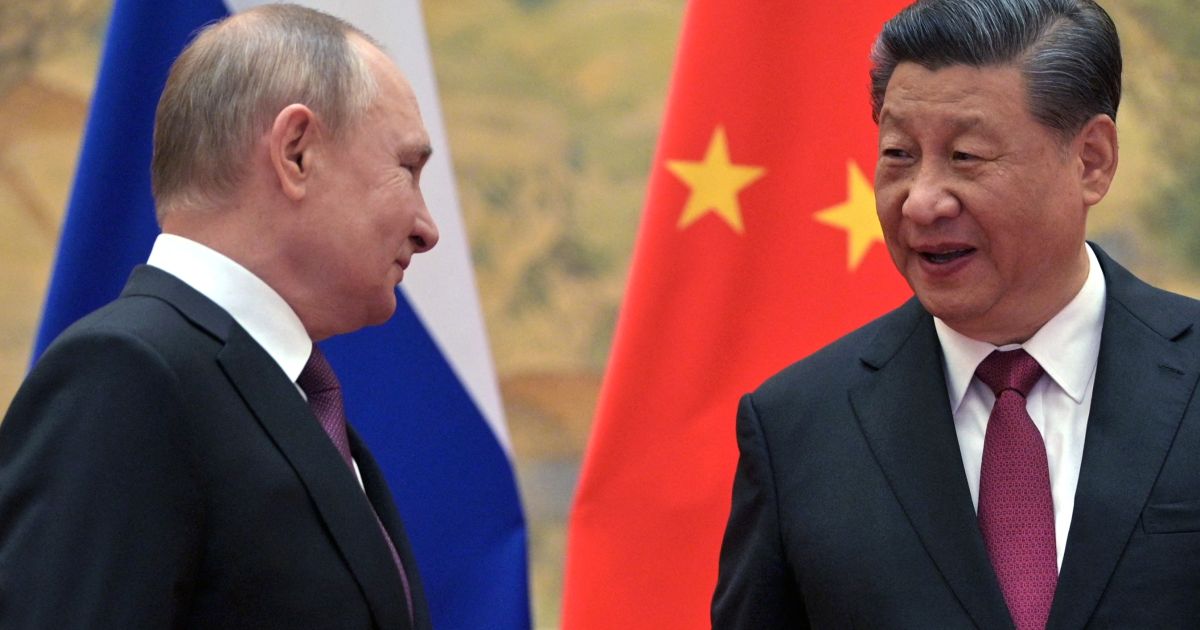As the Ukrainian crisis continues, some countries have appealed to China to play a leading role in putting an end to the ongoing war. Ukrainian Foreign Minister Dmytro Kuleba called on Beijing to use its influence to stop the Russian military operation against his country.
European Union Foreign Policy Commissioner Josep Borrell, in turn, declared that China is the most appropriate party to play such a role.
In an article for the American website "The Hill", Chushen Zhou, a professor of political science and international relations at Bucknell University in Pennsylvania, believes that there are good reasons for China to be an "honest" mediator in this crisis, especially since it has been suffering from a tarnished reputation internationally. In recent years due to its controversial policies in Hong Kong and Xinjiang province and its "resolute" diplomacy.
The success of its mediation in resolving such an international crisis - the newspaper adds - would greatly enhance China's international standing, and peace in Europe would contribute to its economic stability, and Beijing played such a leading role in easing tension on the Korean Peninsula early The current millennium by hosting the Six-Party Talks on the denuclearization of North Korea.
Since the start of the Russian war on Ukraine, China has been practicing what the author calls "telephone and video diplomacy", as President Xi Jinping and his Foreign Minister Wang Yi demanded a ceasefire and a diplomatic solution in their talks with their international counterparts.
China also appears willing to cooperate with other countries to address the humanitarian crisis caused by the Russia-Ukrainian war.
Beijing has been under intense pressure to play the mediating role, but it is still reluctant to take a leadership role "because of major internal and external obstacles."
The conflict is first and foremost - the writer adds - not only between Russia and China, but between Russia and the United States and the West in general.
Western leaders and media have described the ongoing conflict as between democracy and absolute autocracy, while Beijing, from the Western perspective, includes the camp of absolute authoritarian rule.
The "unfortunate" state of China's relations with the West, especially with the United States, does not make it much willing to engage deeply at the present time, "Russia is the only friendly country to China among the major powers at a time when the Western bloc is hostile to it" because of its renaissance.
The second thing - according to the writer - is that the current moment is characterized by political sensitivity in China, and it is expected that Xi Jinping will be re-elected for a third term as Secretary-General of the Chinese Communist Party and president of the country unless major obstacles occur.
European creation
In addition, many Chinese analysts believe that the Ukrainian crisis was created by the Europeans and the Americans and therefore it is their responsibility to solve it, and that inviting China to lead the mediation is nothing more than a disavowal of responsibility.
China is also increasingly concerned about Taiwan's future. Despite the stark differences between Ukraine and Taiwan, both countries are portrayed as being at the forefront of the confrontation against their neighbor's authoritarian giants.
The writer says that US President Joe Biden's decision to send a delegation to Taiwan led by former Chairman of the Joint Chiefs of Staff Mike Mullen in the midst of the current crisis, sends a strong message that the United States is committed to defending Taipei.
He stresses that China's strategic calculations of its international and domestic priorities dominate the incentives that push it to lead the mediation efforts in the conflict between Russia and Ukraine, noting that China - like other powers - puts its interests in the first place.

